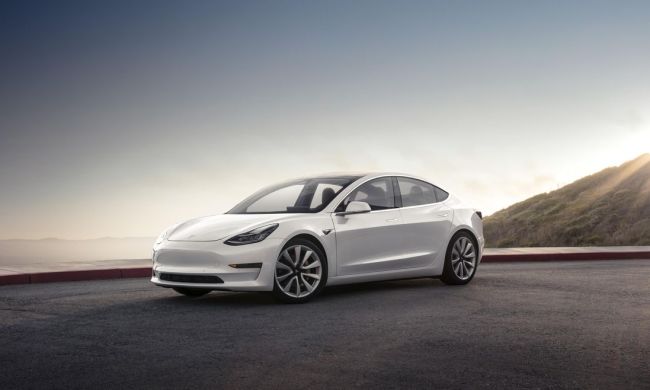Tesla’s innovative over-the-air software updating system allows it to upgrade (and, sometimes, repair) its cars wirelessly, but some problems will always require tools and a trained mechanic. It encountered one recently, so it’s voluntarily recalling 15,000 early examples of the Model X to fix a problem with the power steering system.
Documents published by the National Highway Traffic Safety Administration (NHTSA) explain that the aluminum bolts that secure the electric power steering system’s gear assist motor to its housing can break if they become corroded. If that happens, drivers could have a difficult time turning the steering wheel, and might lose the power assist altogether. Tesla stressed that no crashes, injuries, or deaths are linked to the defect, according to Automotive News.
“We have observed excessive corrosion on the bolts that attach this component to the steering gear in affected Model X vehicles. This corrosion has been observed primarily in very cold climates that use calcium or magnesium road salts rather than sodium chloride (table salt),” Tesla noted in a statement published on its website.
If you drive a Model X, you might not need to worry about the problem. It only affects some examples made during the 2016 model year; there are 14,193 potentially defective cars registered in the United States, and 843 in Canada. Vehicles made after October 2016 aren’t part of the recall. If you’re wondering when yours was built, look for a sticker with identification information in the doorjamb and find the four-digit date on it (e.g., 10/16).
The fix is relatively simple. Technicians will replace the mounting bolts and swap out the steering gear if they notice it has sustained damage. Parts and labor will be free, which is par for the course when it comes to recalls. Tesla wrote that it will contact owners of affected cars individually to schedule a service appointment as soon as replacement parts are available in their region, but it didn’t reveal when or where the campaign will begin. In the meantime, owners can continue to drive their car, because they won’t lose the ability to steer even if the bolts snap.
The Model S and the Model 3 aren’t affected by the problem. The company conducted a very similar recall in March 2018 covering 123,000 examples of the Model S, however.



